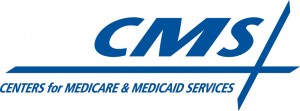UPDATED: MARCH 2, 2020

If a person is injured in an accident, they need to figure out how their medical providers will be paid for their treatment. Many of our personal injury clients in New Jersey are Medicare beneficiaries, many others have private or public employee insurance benefits, and others have access to other types of benefits (or no benefits at all). Usually, an injured patient will visit a doctor and provide the doctor’s office with their regular insurance card. But if their insurance is a Medicare plan, there are some specific concerns that patients should be aware of.

Medicare is a Federal benefits system, which is highly regulated by Federal law. There are many aspects of Medicare that are unique to that system and unlike regular health insurance. Normally, if a person has health insurance their insurance company is responsible for payments for medical treatment, in accordance with the policy. In New Jersey, the law says that each person’s own health insurance is the primary source of medical expense benefits in the case of an accident (except for car accidents, in which case PIP is primarily responsible). That means that even if the defendant is 100% at fault for an accident, the defendant (or their insurance) is generally not responsible for any medical bills unless the plaintiff presented the bills to their insurance company and part of the bills were not paid by insurance (for whatever reason). It also means that the insurance company cannot demand that the plaintiff or defendant pay them back for medical bills that they already paid.
However, if the plaintiff is a Medicare beneficiary, the system works differently. Under Federal law, Medicare is considered a “secondary source” of medical expense benefits. If someone is injured in an accident, Medicare will make payments for treatment, but those payments will be considered “conditional”. What this means is that Medicare is entitled to be reimbursed for all payments made for treatments that were related to an accident, if that accident was the fault of another person or company.
By law, a Medicare beneficiary is required to notify Medicare that they were injured in an accident that may be the fault of another. Therefore, it is critical that a client inform their attorney that they receive Medicare. Not only must the attorney put Medicare on notice, but also provide Medicare with additional information about the claim and sources of insurance coverage. Once Medicare is put on notice of the claim, they will provide a ledger of conditional expense benefits. The attorney must make sure that the bills that Medicare is claiming reimbursement for actually are bills related to the accident.
Finding the extent of Medicare’s claim from an early stage assist the skilled attorney in protecting the client. Just because Medicare is entitled to reimbursement, does not mean that the injured plaintiff must pay that money from their own pocket. Rather, the attorney would include this sum as a part of the damages in the case and demand that the defendant pays this money. Also, when appropriate, a skilled attorney may be able to negotiate with Medicare and reduce their lien in order to maximize the plaintiff’s recovery (for example, if the defendant doesn’t have much insurance and Medicare claims a large sum for reimbursement).
The interplay between Medicare and personal injury cases is complicated and requires a significant amount of time to resolve. The client must also be protected since Medicare could actually refer the matter to the Treasury Department for collection if Medicare is not properly reimbursed. Therefore, it is critical that clients inform their attorneys about their Medicare status at an early stage and that the attorney takes appropriate action to protect the client and maximize recovery.



